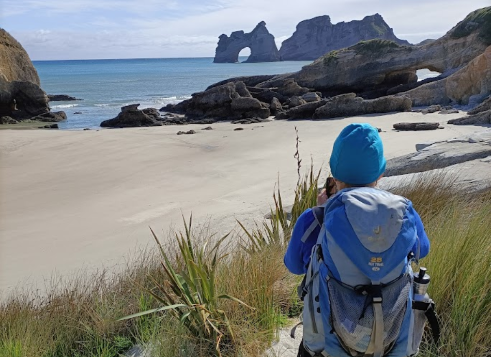Gratitude and wellbeing
Key points about gratitude
- Gratitude is an attitude of counting your blessings, feeling appreciative and thankful for what you have, rather than focussing on what you don’t have.
- The wellbeing benefits of practising gratitude are numerous and range from getting better sleep to having a stronger immune system.

Research shows that gratitude improves our physical, psychological and social wellbeing. This is because by feeling grateful, we:
- improve our mood
- take better care of our health
- lower our blood pressure
- sleep better
- increase our resilience
- get on better with other people.
Video: How gratitude changes your brain
Through the ages, philosophers and religious teachers have made a connection between gratitude and general wellbeing. Science has now confirmed this.
Studies have found that:
- Gratitude is the best predictor of wellbeing out of any character strength.
- People with heart disease improve their heart health through practising gratitude.
- Teenagers who feel grateful are less likely to abuse drugs and alcohol.
- Grateful people have more self-control, which helps with healthy eating and quitting smoking.
- Gratitude reduces insomnia and depression, increases happiness and improves immunity.
- Counting your blessings improves your self-esteem, because when you feel better about your life, you are less likely to compare yourself negatively with others.
Some people are naturally more grateful than others. But the good news is we can all become more grateful through practice.

Image credit: Canva
Keep a gratitude diary:
- Each day, write down in a notebook 3 things you feel grateful for.
- Do this in the morning or evening, whichever works best for you.
- Do it every day to get the most benefit from it.
- Be specific – focussing on details works best. So instead of writing “I feel grateful for my partner”, write “I appreciate that my partner made me a cup of tea this evening”.
- Keep looking for new things to be grateful for.
Other ways of developing gratitude:
- Saying thank you: See how many times during the day you can say thank you to someone for a small thing. If it’s a bigger thing, write a thank you note.
- Keeping a reminder with you of something you feel grateful for: A photo of your whānau or pet on your screensaver, a sound recording of your baby or grandmother on your phone, or that trinket in your purse or pocket that reminds you of a great holiday.
- Picking something you take for granted and feeling grateful for it: This could be clean water on tap, having use of a car or your favourite coffee mug from the kids. It could be having legs to walk with or eyes to see with, or it could be the sun, fresh air or nature.
- Doing a gratitude meditation: Sit quietly with your eyes closed, and focus one by one on all the people you feel grateful for, whether they're still alive or not. Send each one loving thoughts and feelings.
- Writing a gratitude letter: Write a letter to someone you feel grateful for. You don’t have to send it, but if you do, you’ll feel even better, and even more so, if you read it out to them!
- Including the family: Tamariki can learn to increase their feelings of gratitude too. At dinner, ask each person to name one thing they are grateful for from their day.
- Feeling thankful when you wake up in the morning: Each new day is a gift of life. Appreciate it.
Video: Canterbury Medical Officer of Health Dr Ramon Pink
This video describes ways to tune into those simple things that make us feel good and are most important to us.
(All Right?, NZ, 2021)
Happify(external link) This site has interactive games and activities on gratitude and other aspects of happiness
Gratitude o'clock(external link) Sparklers, NZ This site has worksheets and fun activities for students to learn about and practice gratitude. Also available in te reo Māori(external link)
Ignite Aotearoa(external link) is a wellbeing platform for your business with resources freely available to everyone in Aotearoa New Zealand
The thankfulness project – be great NZ(external link) Lifting up Kiwis' mental health with a daily dose of thankfulness
Gratitude practice(external link) Small Steps, NZ provides an exercise to focus on the small things in life that bring you joy
References
- Emmons RA. Why gratitude is good(external link) Greater Good, US, 2010
- Emmons RA, McCullogh ME. Counting blessings versus burdens – an experimental investigation of gratitude and subjective wellbeing in daily life(external link) J Pers Soc Psychol. 2003;84(2):377–389.
- Hilla PL, Allemand M, Roberts BW. Examining the pathways between gratitude and self-rated physical health across adulthood(external link) Pers Individ Differ. 2013;54(1):92–96.
- Wood, AM, Froh JJ, Geraghty AWA. Gratitude and wellbeing – a review and theoretical integration(external link) Clin Psychol Rev. 2010;30(7):890–905.
- How gratitude leads to good health and happiness(external link) Happify Daily, US
- Carpenter D. The science behind gratitude (and how it can change your life)(external link) Happify, US
Credits: Healthify editorial team. Healthify is brought to you by Health Navigator Charitable.
Last reviewed:
Page last updated:





